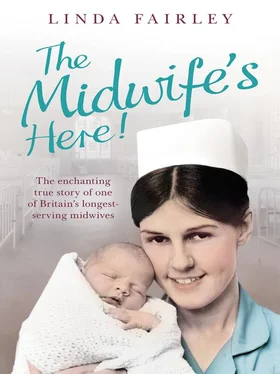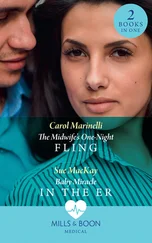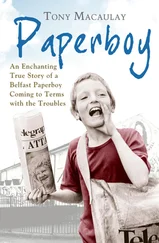A few students walked in front of us, merrily swaying and singing the song ‘We’re All Going on a Summer Holiday’. I’d seen the film with Sue at the Stalybridge Palace when it first came out in 1963, and I’d been a big Cliff Richard fan ever since. Graham had even taken me to London to see him in concert with The Shadows at the London Palladium. Watching the students, carefree and clad in brightly coloured drainpipe trousers and winkle-picker shoes, took me right back in time.
‘Look at them, they think they’re on Carnaby Street!’ I joked to Linda, nodding towards the students. She asked about my one and only visit to the capital and I enjoyed reminiscing about it.
I told her Graham and I had gone on a North Western coach from Stalybridge and stayed in a twin room at a rather seedy hotel near the Palladium, though of course we never ‘did’ anything in the bedroom. Instead, we dutifully went to see the guards at Buckingham Palace and walked hand in hand along Downing Street to pose for a photograph with the policeman outside Number Ten, which every tourist did back then before security was tightened up and the road was sealed off.
After that we strolled along Carnaby Street, admiring the fancy window displays and ultra-fashionable shoppers. London girls wore similar clothes to us – mini skirts, babydoll dresses with matching coloured tights, kinky boots and ‘Twiggy’ shoes with fancy buckles – but everything seemed exaggerated, somehow. The colours were brighter, the skirts shorter, the belts wider and the shoes shinier – or at least that’s how I remembered it. My eyes were on stalks the whole time, and Graham’s eyes nearly popped out of his head when he saw the prices of the clothes at the men’s outfitters Lord John, as they were far more expensive than in Manchester.
The concert was really great. A kindly usher noticed that Graham and I didn’t have a very good view from up in the gods and offered to move us nearer the front. Our new seats were practically on the stage, and when Cliff began to sing I felt as if he was singing just for me. It was very hot and quite stuffy, with dry ice and cigarette smoke filling the air, and by the end of the evening my mustard and black smock dress was thick with perspiration, not to mention the pungent smell of Capstan and Park Drive cigarettes. Graham was so hot he had to remove his tweed jacket and skinny-striped tanktop, but Cliff somehow remained cool and impeccably presented in his sharp-cut suit throughout the show. I adored him!
‘We’re All Going on a Summer Holiday,’ the students on Oxford Road continued to sing badly, jolting me sharply back to this Manchester night in the summer of 1967. I envied the students’ freedom, their joie de vivre. Just a year or so earlier I had left the Palladium singing that song without a care in the world, just like them. Now life had become much more serious, even though I was still only nineteen years old.
‘I guess we all have to grow up some time,’ I remarked to Linda wistfully, ‘but I feel so old compared to those students!’
‘Hey, we’re still “Young Ones”,’ she joshed, recalling another Cliff song, but I think she knew exactly what I meant. We were young, of course, but as student nurses we were no longer carefree.
Chapter Four
‘People are dying … This is harder than I thought’
One morning about twenty student nurses in my intake assembled in the hospital car park and clambered onto a coach with Mr Tate. Our destination was Booth Hall Children’s Hospital in Blackley, north Manchester.
I knew it had a reputation for being one of the finest children’s hospitals in the country, and I hung on Mr Tate’s every word during the journey as he explained how Humphrey Booth first opened the infirmary in 1908, caring for the sick and destitute from the workhouse after the devastation caused by the plague. In 1914 it took in wounded soldiers from the First World War, and when war was declared a second time the hospital relocated its existing patients and installed a decontamination unit to treat victims of gas attacks.
‘Fortunately for the region, the anticipated casualties never materialised and within six months Booth Hall reverted back to caring for sick children,’ Mr Tate said. ‘The inscription on Humphrey Booth’s headstone reads “Love his memory, imitate his devotion”, and I think you will all agree that is an excellent standard to aspire to.’
I felt quite emotional as the coach pulled into Booth Hall. It was a privilege to be a part of the NHS, continuing the good work of the likes of Humphrey Booth, and I was eager to learn about caring for children. I imagined it would be a worthwhile and rewarding branch of nursing, looking after little ones and then returning them, fit and well, back to the bosom of their family. Maybe I might think about being a children’s nurse in the future?
It was windy as we walked across the car park to the hospital entrance, where a smiling but straight-backed Matron stood resplendent in a thick cape, arms held wide and welcoming like a priest on a pulpit addressing the congregation.
‘Welcome to Booth Hall,’ she enunciated with immense pride. ‘My staff and I are very pleased to have the opportunity to show off our fine hospital. I hope the visit will serve as an inspiration for you all, girls.’
I caught a glimpse of Linda, who was trying hard to suppress a giggle. ‘What?’ I whispered.
‘Mr Tate,’ she said, flicking her eyes over my shoulder.
I turned and saw our tutor grappling unceremoniously with his comb-over, which had become unstuck and was flapping wildly in the breeze, revealing his bald, shiny scalp in all its glory. The escaped hair must have been at least a foot long in full flight.
‘Linda, you are awful,’ I said. ‘Poor Mr Tate!’
We were taken on a whistle-stop tour of several wards and day rooms, which I was heartened to note had colourful bedclothes and curtains and bright pictures on the walls. Children wrapped in dressing gowns and slippers sat quietly with nurses, playing with wooden farmyard animals and train sets. I’d like to do that, I thought.
Our final stop was the burns unit. The smell and stiflingly high temperature hit me as soon as we stepped through the door, and my head immediately started to spin. In here, children were undressed save for their underwear and bandages wrapped around legs, arms, torsos and heads. There was a sickly-sweet smell of flesh mixed together with a petrol-like odour.
Sister Pattinson, who was in charge of the burns unit, patiently started explaining how burns were dressed with open-weave gauze impregnated with Vaseline, which was designed to stop it sticking. I thought how cool and composed she appeared – or was that just in comparison to me? By the time Sister Pattinson got up to the bit about placing the gauze very delicately over the wound so as not to cause more damage to the raw flesh, I was feeling hot and flustered. I was fainting, in fact, and I couldn’t stop myself.
I remember hearing the scraping of chair legs and the words: ‘Put your head between your legs, Nurse Lawton,’ as the ward began to swirl around me. Then I blacked out.
‘Never mind, Linda. Happens to the best of us,’ Lesley Bennyon told me back at the MRI the following evening, when we signed in for a night shift together.
‘I just felt so stupid,’ I said. ‘What must the children have thought? They are such brave little souls, and there’s me, with nothing wrong, collapsing like that in front of them.’
‘Put it behind you,’ Lesley advised. ‘Onwards and upwards! Come on, let’s see what’s in store tonight.’
Glancing down the ward, I noticed that Mrs Pearlman was fast asleep, which was unusual at the start of a night shift. The night sister had not yet given me my orders, so I walked over to Mrs Pearlman to check on her. She was very still and very quiet, and her black hair had fallen messily across her face. Strands of it were lying across her nose and mouth, and as I got closer I held my breath. Her hair was as still as she was. There was no breath coming from either her nose or her mouth.
Читать дальше












